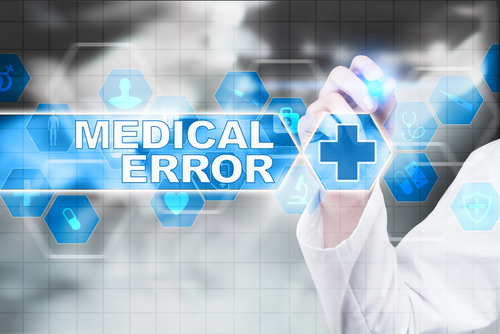Have you ever wondered what the third leading cause of death is in the United States is? Since heart disease and cancer are the first two, you would probably think the third would be diabetes or suicide. You will probably be very surprised to hear that the third leading cause of death is medical error. A number of studies have found that medical errors have consistently been a leading cause of death for years. The most recent study was conducted by John Hopkins University. That study showed that 250,000 people die from medical error every year. People make all kinds of assumptions about this statistic. A few years ago, when I was living in California, a lobbying body of attorneys pushed for a new law that would have required physicians to undergo substance-abuse testing. The lobbyists cited the statistic about medical error causing more deaths than anything else except cancer and heart disease. On the surface, this argument may have sounded reasonable. However, it made a couple of glaring assumptions that fall flat:
- It assumed that medical error was primarily due to physician negligence or malpractice.
- It was predicated on the idea that substance abuse was the leading cause of medical errors that resulted in patient deaths.
The truth is that there are a number of factors that cause medical errors, so they all need to be addressed. Mayo Clinic discussed some of the biggest causes of medical errors and strategies to reduce them. Some of these causes are listed below:
- Poor communication between patients and doctors
- Miscommunications between different doctors
- Medications that have similar sounding names but very different purposes
- Poor cleanliness and sterilization on the part of orderlies and other professionals (this is one of the reasons that infection preventionist services have become so much more popular)
- Recordkeeping mistakes on the part of hospital intake employees and clerical staff
Healthcare facilities around the world need to pay attention to these factors. They need to address all issues that contribute to medical errors to minimize the risk of unfortunate incidents, which can include patient death. The most important steps that healthcare professionals can take are improving communication between all employees and patients. They need to realize that every individual that participates in patient care can have a substantial impact on healthcare outcomes. They need to make sure that everybody is doing their job appropriately. Even the smallest mistake by employee that has minimal interaction with the patient could have debilitating consequences. Fortunately, healthcare organizations have finally started to understand the importance of minimizing medical errors. The steps that they have started to take are making a tremendous difference.
What is the responsibility of patients?
Healthcare organizations need to certainly do their part to minimize the risk of medical error. However, some of the burden also needs to fall on the patients. A patient’s responsibility, first and foremost, is to make sure that they understand everything that is going on. They have to stay informed, so they can be active participants in their own healthcare decisions. Here are some tips that patients should follow to reduce the possibility of medical errors:
- They should carefully review any medical documents that they receive. They need to look for signs that anything has been entered incorrectly.
- They should be familiar with the different medications that the doctor has prescribed. It is important to make sure that they can tell if the wrong medication is listed on a prescription or their charts. This could happen if two different types of medication have similar names, but different purposes. They need to immediately reach out to their physician and let them know.
- They should be familiar with the different medications that their doctor has prescribed. It is important to make sure that they can tell if the wrong medication is listed on a prescription or their charts. This could happen if two different types of medication have similar names, but different purposes. They need to immediately reach out to their physician and let them now.
- They need to follow up with their physicians regularly to make sure that information is properly passed along to specialists that they are working with.
- They need to always communicate any symptoms that they have to their doctor if they think that they are relevant. They also need to make sure that they are as honest as possible with her doctor.
- They should ask their doctor regularly about the outcomes of any tests or other information. It is important to make sure that the doctor did not forget about anything.
Patients can work with their doctors to reduce the possibility of medical error related deaths.

